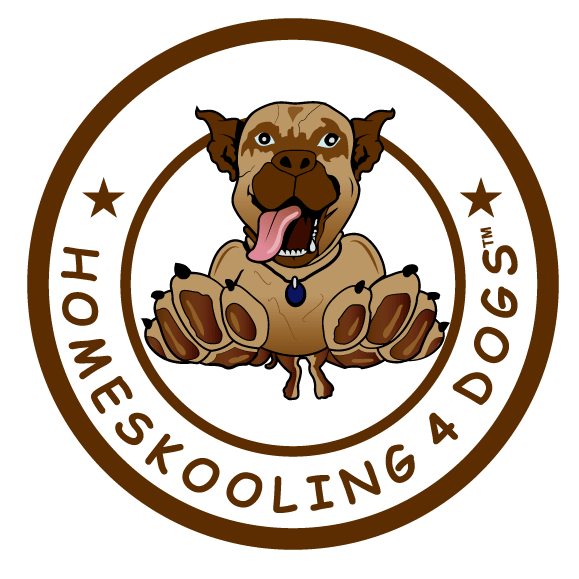Teeth & Dental Care
Puppy Teeth
Dental Products
Dental Chews
Dental Cleaning
https://vcahospitals.com/know-your-pet/dental-disease-in-dogs
https://veteriankey.com/soft-tissues-of-the-oral-cavity/
Puppies are born with 28 puppy teeth and they start teething at about 3 months as they start to chew on almost anything they have access too. At about 4 months of age the baby teeth begin to fall out to be replaced by adult teeth. Generally puppies have lost all their puppy teeth around 6 months of age. Although born with 28 teeth adult dogs have 42 teeth whether they are a Chihuahua or Irish Wolfhound. It’s during this teething phase that we need to supervise closely and provide our puppies with a great amount of the proper things to chew. If we don’t meet their needs they will find a way to meet their own needs that may not be to our liking.
What to do
Provide them with a variety of safe chew toys so they are less likely to chew on inappropriate things. Rotate these toys every day or even twice a day to keep them interested in the toys. If there is a favorite one or two toys, you can leave them out every day and just rotate the others to keep them all interesting.
No toy is indestructible • A quality chew toy will satisfy your dog's need to chew and provide a constructive and safe way to occupy his time. • Toys must be nontoxic, large enough that they cannot be swallowed, destroyed or ingested • Supervisor your dog with any new toy to be sure it is safe for your dog.
Puppy Chew Toys
Tough Chew Toys (Large puppies or adult dogs)
Toys to Entertain
At about 7-10 months of age dogs will generally start a more pronounced intense stage of chewing that will usually last about 6-12 months. This helps to exercise developing jaws and is the way dogs learn about their environment. (small children also put things in their mouths) It is not uncommon for dogs to pick up shoes, toys, tissues, television remotes, etc… This behavior may be exploratory, or it may be a way the dog has learned to get attention and to get someone to play with them. For guidance on how to properly handle this click here:
Bones & Chews?
Before giving your dog a bone or chew there are several things you need to take into consideration. Start here: Bones & Chews
Caring For Your Dog’s Teeth
10 month old dog
DO NOT use human toothpaste on dogs. Human toothpaste often contains fluoride and xylitol which can be toxic if ingested not to mention all the other chemicals dogs should avoid. Dogs don’t spit so what goes in their mouth gets swallowed or absorbed through the tissues in the mouth. [1]
No, kibble doesn't clean your dog's teeth
Can plaque and tartar be prevented?
“The rate at which plaque becomes mineralized is much quicker in some dogs than in others.”
“The best way to prevent tartar build-up is through daily tooth brushing using a toothpaste that is specifically formulated for dogs and is designed to be swallowed. Unfortunately, even though it is the best form of plaque control, most dog owners do not brush their dog’s teeth daily.” https://vcahospitals.com/know-your-pet/dental-disease-in-dogs
How fast your pet's teeth get dirty depends on several factors: by Dr. Karen Becker
Your pet's age and breed
Genetic tendencies
Your pet's diet (high-carbohydrate diets - or those containing rice, corn, wheat, tapioca, or potatoes - promote the need for more frequent dental cleaning)
The amount of saliva your pet produces (the more the better)
Your dog’s teeth are not like yours, let me count the ways
Analysis by Dr. Karen Shaw Becker
Clues to Your Dogs Health Can Be Just a Whiff Away (Tufts)
Oral tumors. “Just as dogs can smell cancer on us, we can smell it on them — if it is in their mouths. The scent is literally sickening — hard to take in some instances. It comes from the necrosis [death] of cells. A change in the odor of a dog’s breath can also indicate a malignant tumor. “Don’t just chalk it up to doggie breath,” advises Dr. Berg. “Take your dog to the doctor, particularly because oral tumors are often in the back of the mouth, where they’re not really that noticeable.” Unfortunately, oral tumors can be among the most difficult to treat. They tend to grow fast, into surrounding bone and tissue, and they also spread quickly to other sites in the body. Such tumors are usually seen in large breeds.”
Severe periodontal disease. “With some dogs, it smells as if you’re staring into the mouth of a whale when you get too near them. They simply have awful breath. That in itself is not a problem — for the dog, anyway. But if the odor is particularly strong and foul, and especially if it’s in conjunction with loose teeth and pus, the dog probably has advanced periodontal disease, which is a fancy way of saying that the gums surrounding his teeth have deteriorated to a significant degree, and perhaps the bone around his teeth, too. Once the bone erodes, it can no longer anchor the teeth, which is why they loosen — and potentially fall out. If the problem remains unchecked, even the jaw can weaken to the point that small blood vessels beneath the bone become damaged and bleed, allowing a pathway for bacteria to enter the bloodstream. You can avoid this cascade of events by brushing your dog’s teeth once a day, every single day, and by taking him for dental cleanings when the veterinarian suggests them. Older dogs, in particular, may need a professional cleaning once or twice a year to remove “gunk” that has accumulated under the gum line, where you can’t reach.”
Human-Grade Dental Chew Bones for Dogs
Natural cleaning abrasives for clean teeth and healthy gums
Completely digestible
Fresher breath
100 percent U.S.A. ingredients









